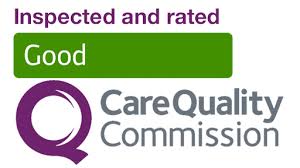Follicular Tracking Scan (Transvaginal Scan)
At International Ultrasound Services in London, we provide expert follicular tracking and antral follicle count scans, ensuring precision and care at every stage.
If you're seeking insights into your ovulation cycle, timing for artificial insemination, or preparing for IVF treatment, our ultrasound clinic in London is ready to support and assist you with a a team of dedicated healthcare professionals and state of the art ultrasound technology.
Follicle tracking and antral follicle count (AFC) are related but distinct fertility assessment techniques: the follicle tracking monitors follicle development over a cycle (performed from day 10 of your menstrual cycle), while the antral follicle count provides a snapshot of the ovarian reserve at a specific point in time (performed between day 2 and day 4 of your menstrual cycle).
Key Features of the Follicle Scan
- Fertility assessment Scan
- Antral follicle count (AFC)
- Assess Endometrial Thickness and lining
- Assess Follicular growth and Ovulation
- Assess uterus and endometrium
- Transvaginal Ultrasound Scan
- No GP referral is required
- Same time results to take away
- Fully qualified, experienced NHS sonographers
- No preparation is required.
- Same-day appointments are usually available.
- Price: Only £149
- Book Online or over the phone

Genuine 5 Star Google Reviews from 300+ patients
What is a Follicle Tracking Scan?
A Follicle Tracking Scan, also known as an ovulation scan, is an ultrasound scan that is done during the menstrual cycle to track the development of ovarian follicles. It allows doctors to monitor the growth of follicles and identify when ovulation will occur.
Some key points about Follicle Tracking Scans:
- They are typically performed starting a few days after a woman's period ends, and continuing every 2-3 days until ovulation is detected. The scans allow the doctor to see the follicles developing and measure their size.
- The scans track the dominant follicle, which is the follicle that will eventually rupture and release the egg at ovulation. The dominant follicle grows to around 20mm before ovulation.
- When the dominant follicle reaches around 18-20mm, ovulation is close. Usually ovulation occurs within 24-48 hours after the follicle reaches this size.
- The scans help pinpoint the day of ovulation so that the timing of intercourse or insemination can be planned appropriately, which improves the chances of conception.
- They are commonly used by fertility specialists to time intrauterine insemination (IUI) or in vitro fertilization (IVF) cycles. They are also sometimes used by women trying to conceive naturally.
- The scans are done transvaginally, with a probe inserted in the vagina. This allows clearer images of the ovaries and follicles.
Follicle Tracking Scans use ultrasound to provide important information about the development of follicles in the ovaries, enabling ovulation to be precisely timed. This optimizes chances for conception.
What is the antral follicle count scan?
The Antral Follicle Count (AFC) scan is an ultrasound scan used to count the total number of follicles, each measuring between 2 to 8 mm, in both the right and left ovaries. It is a significant biological marker used in various reproductive contexts.
In controlled ovarian hyperstimulation/intrauterine insemination programs, AFC is used to predict pregnancy outcomes (Chang et al., 2004).
It's also a marker of ovarian reserve and is used to evaluate the proportion of follicles responsive to exogenous follicle stimulating hormone (FSH) during controlled ovarian stimulation (Bessow et al., 2019).
Additionally, AFC is utilized in assessing ovarian function in various populations, including breast cancer survivors, where it provides data independent of other hormonal markers (Su et al., 2009). In in vitro fertilization (IVF), AFC predicts the number of retrieved oocytes and the likelihood of success, although its ability to predict embryo quality or pregnancy is less clear (Silva et al., 2014). AFC is also a critical component in the selection of bovine females for biotechnology, where it correlates with various fertility parameters (Morotti et al., 2017).
AFC is a valuable diagnostic tool in reproductive medicine and biotechnology, used for predicting outcomes in various treatments and assessing ovarian reserve and function.
When is the best time in my cycle to have the follicular monitoring scan?
The best time to have a follicular study is in the first half of your menstrual cycle, often commencing from day 10. The exact timing can differ based on your individual cycle and any specific fertility treatments you might be undergoing.
When is my cycle's best time for the Antral Follicle Count scan?
AFC scans are typically performed between the 2nd and 4th day of the menstrual cycle (Chougle et al., 2008). This timing is chosen to assess the ovarian reserve at a stage when the influence of hormonal variations is minimal.
AFC should be performed within 3 months of a spontaneous menstrual cycle for infertility work-up (Nardo et al., 2007).
What is the cost of the follicle tracking scan in London?
The cost of the follicle tracking scan in our clinic in London is £149.
What is included?
This private ultrasound test includes a digital diagnostic ultrasound report and, if needed, images and a follow-up recommendation.
What are the Benefits of Follicle Tracking Scan?
- Pinpoint ovulation timing - The scans allow ovulation to be identified within a 24-48 hour window, enabling precise timing of intercourse or insemination. This maximizes chances of conception.
- Monitor follicle development - Track the growth and maturation of follicles. This allows doctors to determine if follicles are developing normally and time ovulation appropriately.
- Guide fertility treatments - Scans are used to time intrauterine insemination (IUI), in vitro fertilization (IVF) egg retrieval, and monitor ovarian response to fertility drugs. This information helps optimize treatment.
- Reduce missed ovulation - Scans catch the LH surge and ovulation, which can otherwise be easily missed. This prevents mistimed intercourse.
- Identify reproductive issues - Abnormal scans can indicate problems like ovarian cysts or irregular ovulation patterns. Early identification allows quicker treatment.
- Non-invasive - Transvaginal ultrasound scans are non-invasive and do not have any major risks or side effects associated with them.
- Avoid mistimed intercourse - Scans pinpoint the most fertile days for intercourse, avoiding exhaustion from mistimed intercourse.
Overall, follicle tracking provides valuable information to maximize chances of natural conception or guide fertility treatments. The scans give insight into follicular development and precisely identify the critical ovulation period.
Can this scan diagnose other fertility issues?
While its primary purpose is to monitor follicle development, the scan can sometimes indicate other conditions that might affect fertility, such as Polycystic Ovary Syndrome (PCOS). For a comprehensive diagnosis, it's always best to consult with a fertility specialist.
Are there any preparations required before the scan?
Since the scan is frequently performed transvaginally, we advise patients to empty their bladder before the procedure. It's also beneficial to wear comfortable attire to ensure a smooth experience.
- Tatiana Lukashonok9/21/2024I've visited this clinic a few times and always had a very positive experience. It is easy to find a time slot and book the visit on the website. My appreciation to Yianni and Dr Mo for their professional and thorough examinations, as well as thoughtful feedback, attention to questions and ability to explain complex phenomena in simple words. Thanks to the staff to their careful approach! Would definitely recommend this center!More Genuine Reviewsread less
- Laura McCue8/08/2024Great experience from start to end. I was being tested for reasons behind prolonged bleeding and Yianni was thorough, helped me feel relaxed through the scan, sent me the report very quickly and even responded to further questions the following day promptly and efficiently. He’s a lovely guy. Comfortable and clean clinic. Would definitely recommend!More Genuine Reviewsread lessKeisha Francis7/14/2024I recently had an ultrasound scan at IUS, and I was very impressed with the entire experience. The check-in process was smooth and efficient; I didn’t have to wait long before being called in for my appointment. The scan was conducted thoroughly and professionally, and I felt reassured by the technician’s expertise. After the scan, the results were explained to me, and I appreciated receiving the detailed written report via email on the same day. Overall, my experience at IUS was exceptional. The combination of friendly staff, a comfortable environment, and professional service made for a very positive visit. I would highly recommend IUS to anyone in need of an ultrasound scan.More Genuine Reviewsread less
Other Ultrasound Scans for Women we offer:
We offer a large selection of ultrasound scans for women in London.


















